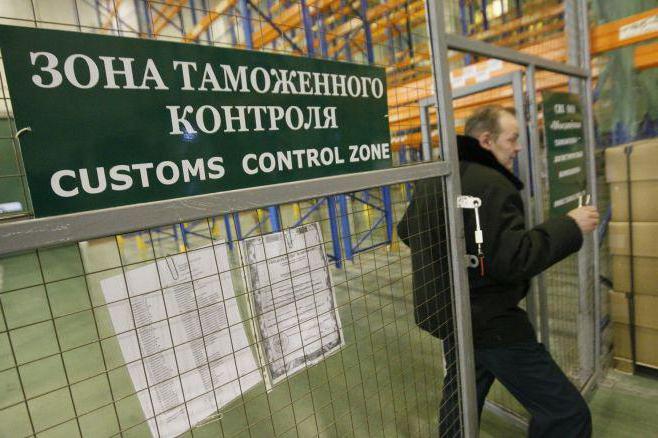Large-scale evasion of customs payments establishes criminal liability. Punishment applies to both organizations and citizens. Consider what sanctions apply to persons who do not make customs payments. 
General punishment
An entity that has not made large-scale customs payments is threatened by:
- Recovery from 100 to 500 thousand rubles. or constituting a salary or other income of the perpetrator for 1-3 years.
- Mandatory work up to 480 hours
- Imprisonment for a period of up to 2 years.
- Correctional work lasting up to 24 months.
Qualifying composition
In Art. 194 of the Criminal Code of the Russian Federation determines the punishment for the above act, if committed:
- A previously conspired group of persons.
- In the amount considered especially large.

For these crimes are assigned:
- Fine from 300 to 500 thousand rubles. or equal to the size of the salary or other income of the subjects for 2-3 years.
- Forced work.
- Imprisonment.
The last two sentences under Art. 194 of the Criminal Code of the Russian Federation can be supplemented by a ban on the implementation of certain activities or staying at a specific post for 3 years.
Aggravating circumstances
The acts that are provided for in parts 1 and 2 of Art. 194 of the Criminal Code, can be committed:
- With the use of violence against an entity performing duties to monitor compliance with the TC TC.
- An official who used his official position.

In these cases, the perpetrators face imprisonment of 5-10 years. Additionally, the court has the right to impose a monetary penalty of up to 1 million rubles. or constituting a citizen’s salary / other income for a period of up to 5 years, and also establish a freedom restriction of 1.5 years.
Additionally
The above acts may also be committed by an organized group. In this case, Art. 194 of the Criminal Code establishes jail sentences of 7-12 years as punishment. In addition, a fine of up to 1 million rubles may be exacted. or an amount equal to the guilty salary / income for 5 years, as well as a restriction of freedom of up to 2 years.
Art. 194 of the Criminal Code: comments
The Customs Code of the Customs Union establishes the types of mandatory deductions provided for entities moving goods across the border of the country. The definition of each payment is disclosed both in the Customs Code itself and in the Tax Code. Legislative acts also establish the grounds for deductions, terms, obligated entities, as well as the rules for repayment of obligations. So, Art. 80 and 80 of the Customs Code, there are cases when a person is exempted from payment of payments. The norms also indicate the circumstances in which this obligation arises. Evasion of payment of stipulated payments consists in non-compliance with the requirements of the law, that is, inaction. 
Objective part
Existing under Art. 194 of the Criminal Code of the Russian Federation, judicial practice indicates that in some cases the offense erroneously includes actions related to the statement in the declaration and other documents necessary for calculating fees, duties, inaccurate information about the regime, country of origin, cost of production and other facts. This understanding reproduces the explanations of the Plenum of the Armed Forces on tax evasion. Responsibility for this is established in Art. 198 and 199.
However, in these norms, evasion of payments established by the Tax Code differs from the crime provided for in the article under consideration. In Art.198 and 199 of the Code, liability is applied when an offender commits an action or additional inaction (failure to submit a declaration, for example). In the norm under consideration, these reservations are absent. Crime, punishment for which establishes Art. 194 of the Criminal Code, is considered completed from the moment of the onset of the period until the end of which the entity must repay the obligations stipulated in the TC TC.
Specificity
Evasion of payments will be considered criminal when committed on a large scale. He, in turn, is defined differently for citizens and legal entities. For the former, they recognize the amount of more than 1 million rubles, for the latter - 2 million rubles. The indicated values may be formed due to non-payment of one or several payments. In the second case, summation is allowed only when all acts of non-fulfillment of the respective obligations are covered by one intent and thus constitute a continuing crime. 
Subjective part
Guilty under Art. 194 of the Criminal Code is inactive with direct intent. If a person, not fulfilling an imputed duty, does not know exactly what specific amount he commits an act, the crime is characterized by the presence of direct, unspecified intent. In such situations, the qualification of misconduct is carried out depending on the consequences. It follows that the act may be recognized as criminal, for example, if the amount does not exceed 1 million rubles. Meanwhile, if it is revealed that the subject sought to evade on a large scale, and in fact the value turned out to be less than expected, the deed is considered as attempted crime.
Guilty
As an entity that may be held liable, a person enters into duty to make customs payments (taxes and duties). Under article 79 of the CU TC, it is the declarant. The concept of this subject is disclosed in paragraph 1 of the fourth article of the said code. If the declaration is carried out by the customs representative, then, accordingly, he becomes the obligated person. The list of responsible entities for deduction of the fee is determined in Art. 79 depending on its type.
In addition, within the meaning of the rule in question, an official who has used official status to commit a crime may be held liable. Along with this, the perpetrators may be in a group organized as well. It includes both ordinary citizens and officials. The crime will in such cases be considered as co-execution, without reference to article 33 of the Criminal Code. The use of official status should be imputed not only to officials, but also to other members of the group, if the circumstances were covered by their intent. This is due to the increased danger of the actions of each such subject.






